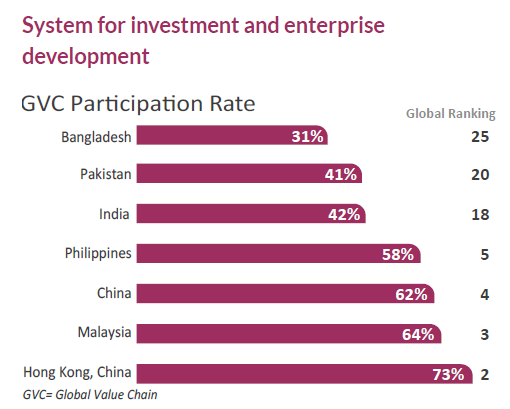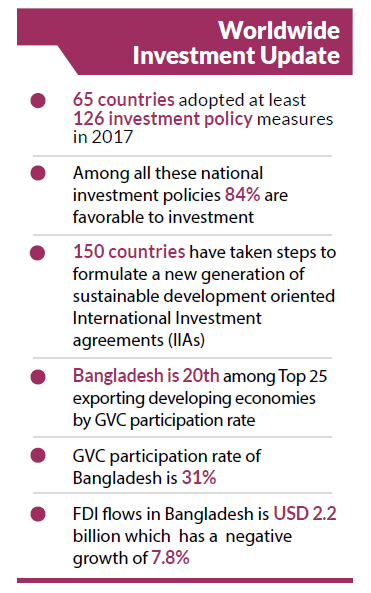World Investment Report 2018: Investment and New Industrial Policies
Countries all over the world develop different policies to either support or to restrict flow of fund. Mostly policies are made to support investment activities
all around the world. The report from UNCTAD has the prime focus on the investments and the policy regarding the investment around the world. This report analyze global trends of investment and study if the policies of the government are positive for investment flow or not.
Measures taken to boost investment globally
An increasing number of countries have taken a more critical stance towards foreign investment. New investment restrictions or regulations in 2017
mainly reflected concerns about national security and foreign ownership of land and natural resources. Stable flow of FDI was seen over the world which is
USD 671 billion. The FDI flow dropped 10% in 2016 seeing no recovery following the 10 per cent drop in 2016. FDI flows to Africa reached USD 42 billion.
FDI flows was USD 476 billion which is stable. Asia is recognized as the largest FDI receiving area of the world.
The study demonstrates that advanced modern strategies are progressively differing and complex, tending to new topics and including bunch destinations past regular mechanical improvement and basic change, for example, GVC reconciliation and redesigning.


Bangladesh is being in 25th position in the ranking being 20th in the gross export ranking all over the world. In the report they have identified EPZ as a
key economic force in the report. The report says this special economic zone will improve the FDI
inflow in Bangladesh.
ABOUT THE RESEARCH
World Investment Report 2018: Investment and New Industrial Policies is a report published by The UNCTAD Investment and Enterprise Division is the focal point in the United Nations on the investment flow around the world, policy reforms to enhance FDI flow.
